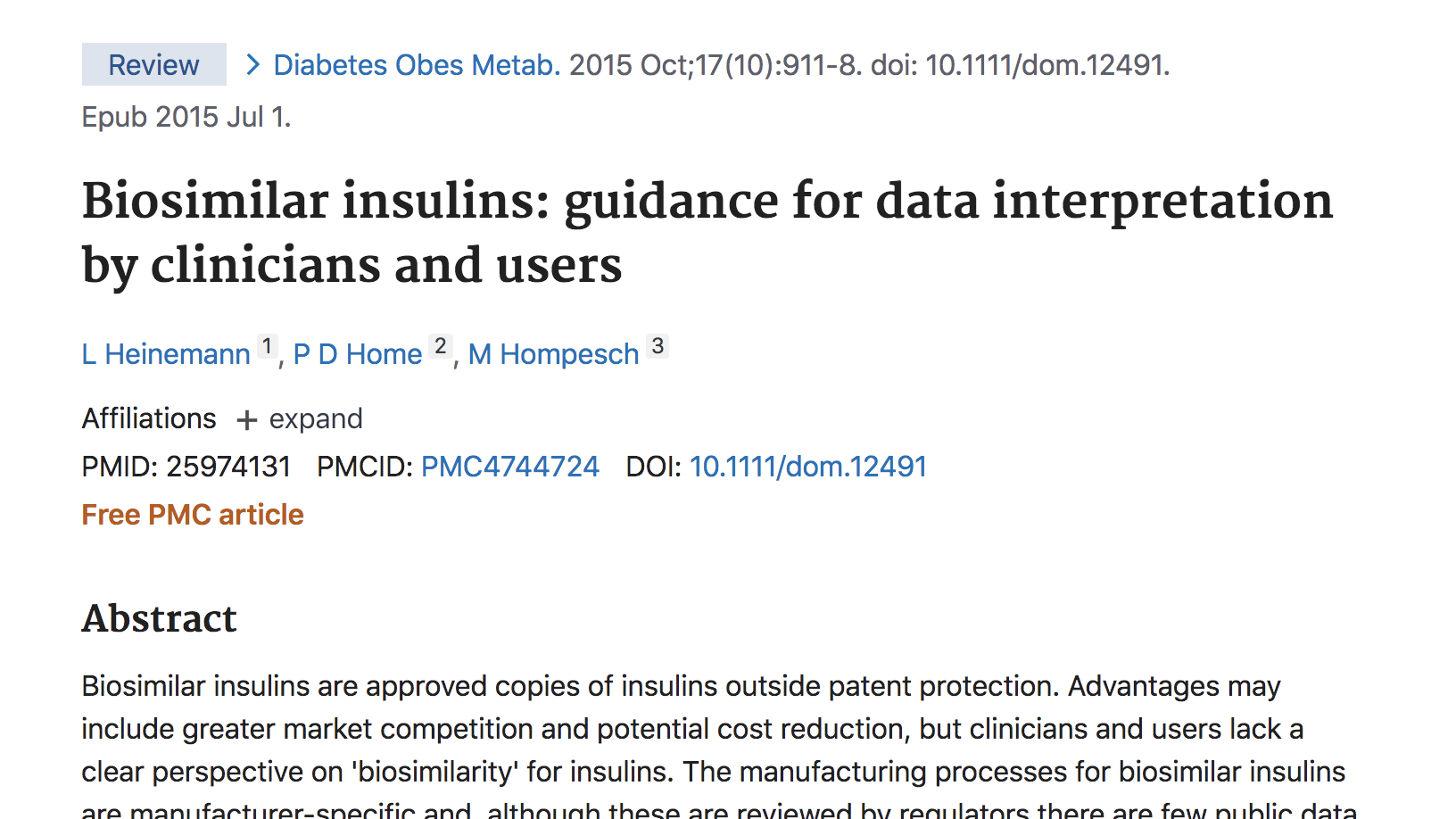About This Article
Biosimilar insulins are approved copies of insulins outside patent protection. Advantages may include greater market competition and potential cost reduction, but clinicians and users lack a clear perspective on ‘biosimilarity’ for insulins. The manufacturing processes for biosimilar insulins are manufacturer-specific and, although these are reviewed by regulators there are few public data available to allow independent assessment or review of issues such as intrinsic quality or batch-to-batch variation. Preclinical measures used to assess biosimilarity, such as tissue and cellular studies of metabolic activity, physico-chemical stability and animal studies of pharmacodynamics, pharmacokinetics and immunogenicity may be insufficiently sensitive to differences, and are often not formally published. Pharmacokinetic and pharmacodynamic studies (glucose clamps) with humans, although core assessments, have problems of precision which are relevant for accurate insulin dosing. Studies that assess clinical efficacy and safety and device compatibility are limited by current outcome measures, such as glycated haemoblobin levels and hypoglycaemia, which are insensitive to differences between insulins. To address these issues, we suggest that all comparative data are put in the public domain, and that systematic clinical studies are performed to address batch-to-batch variability, delivery devices, interchangeability in practice and long-term efficacy and safety. Despite these challenges biosimilar insulins are a welcome addition to diabetes therapy and, with a transparent approach, should provide useful benefit to insulin users.



